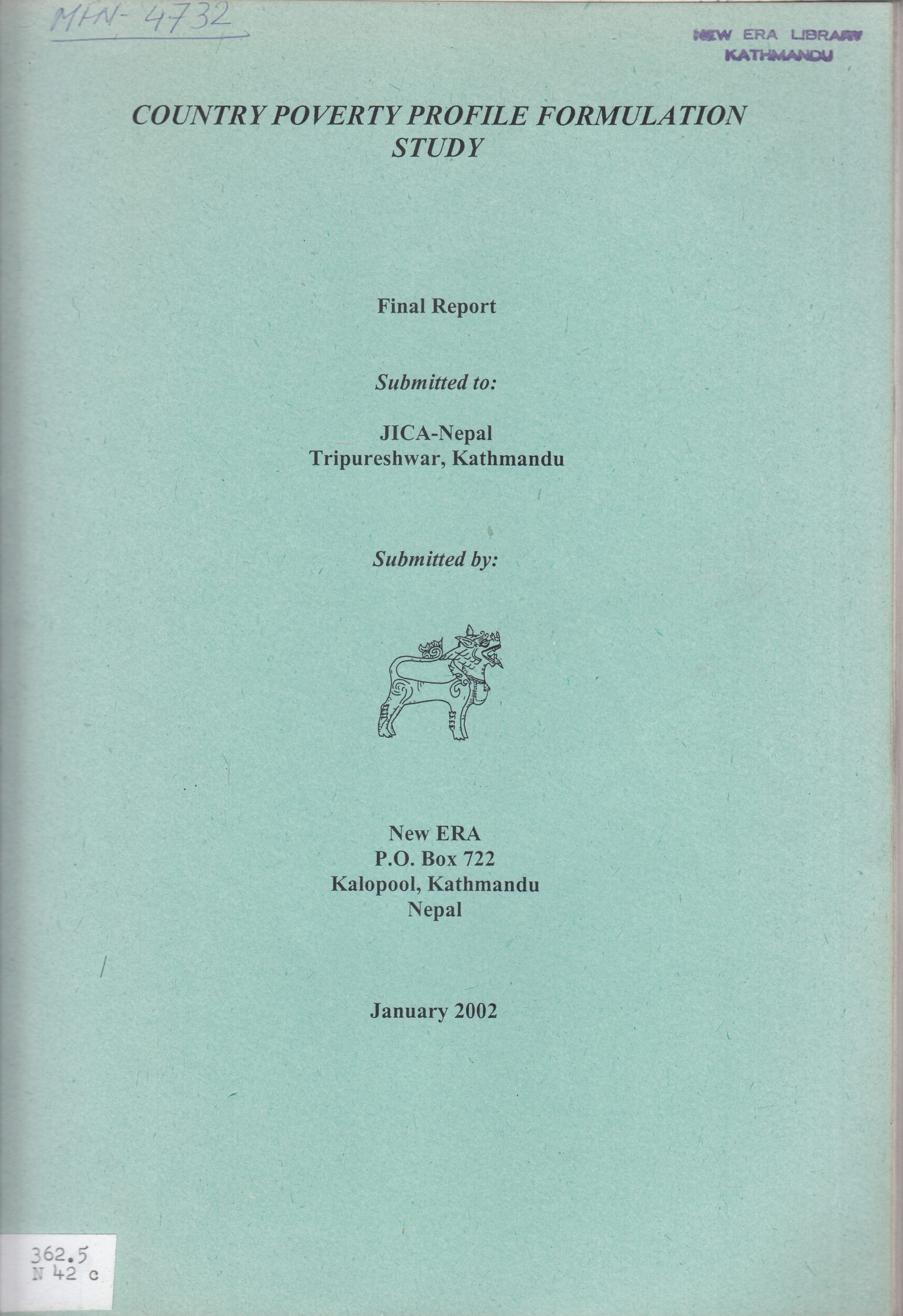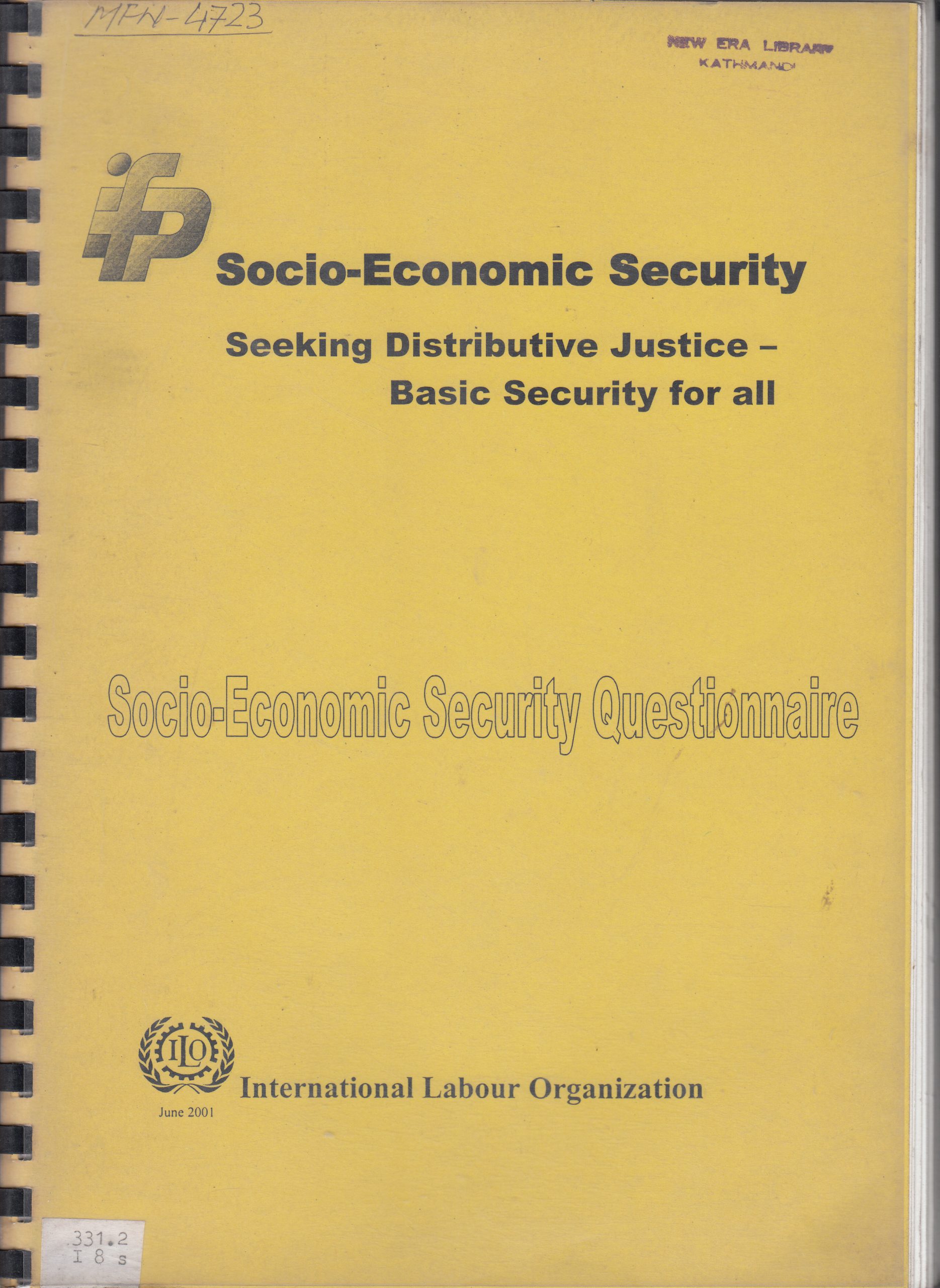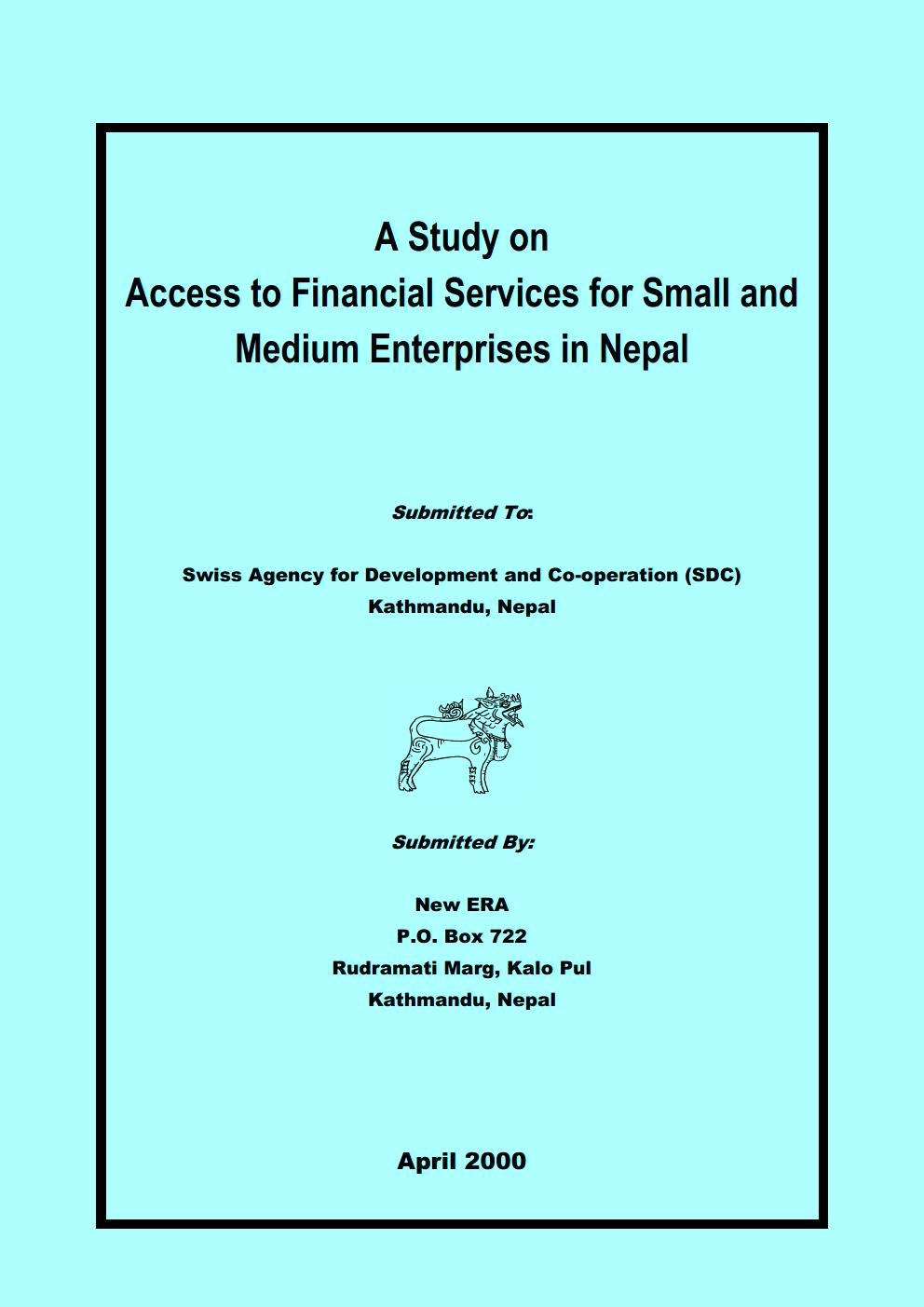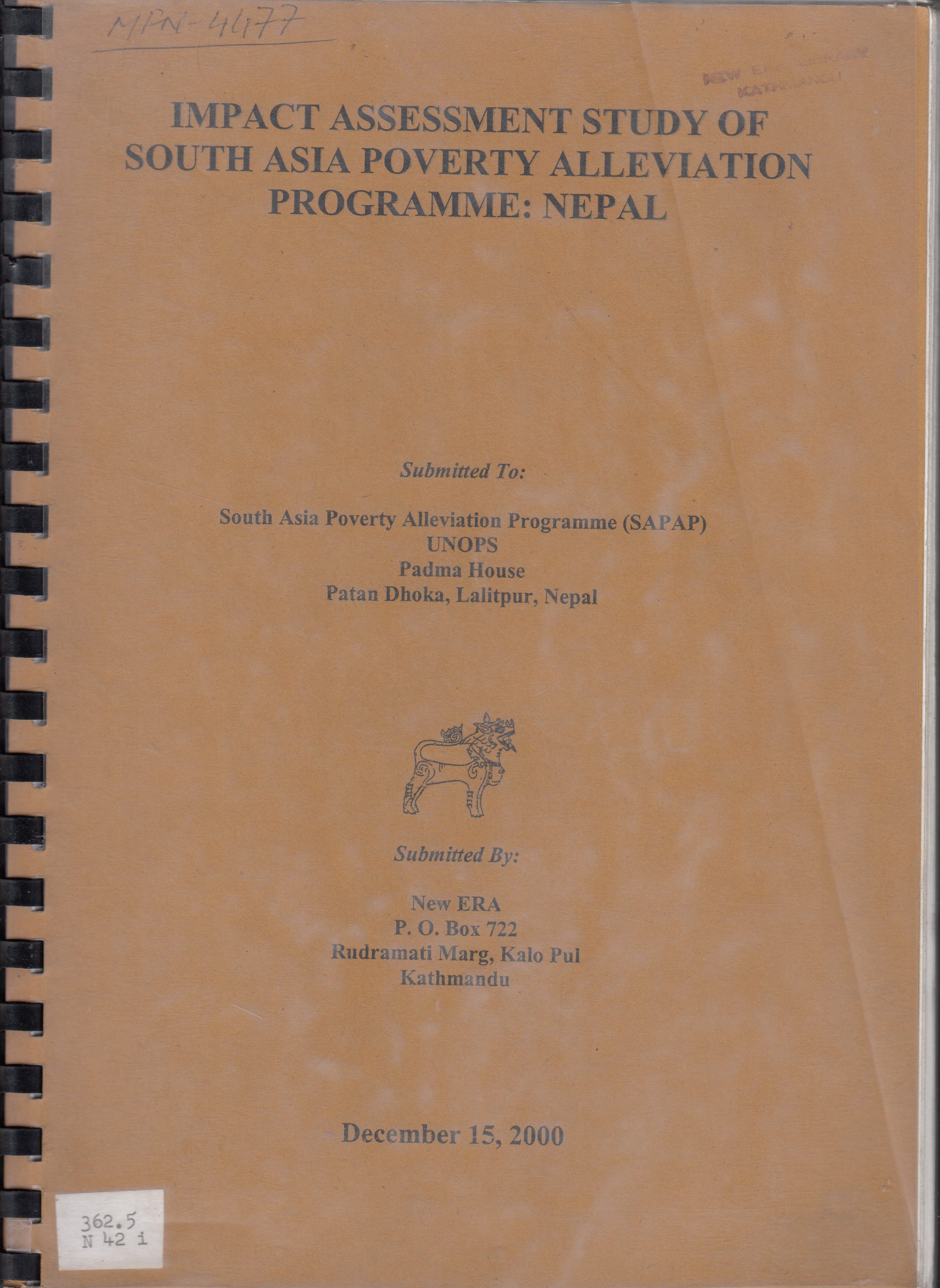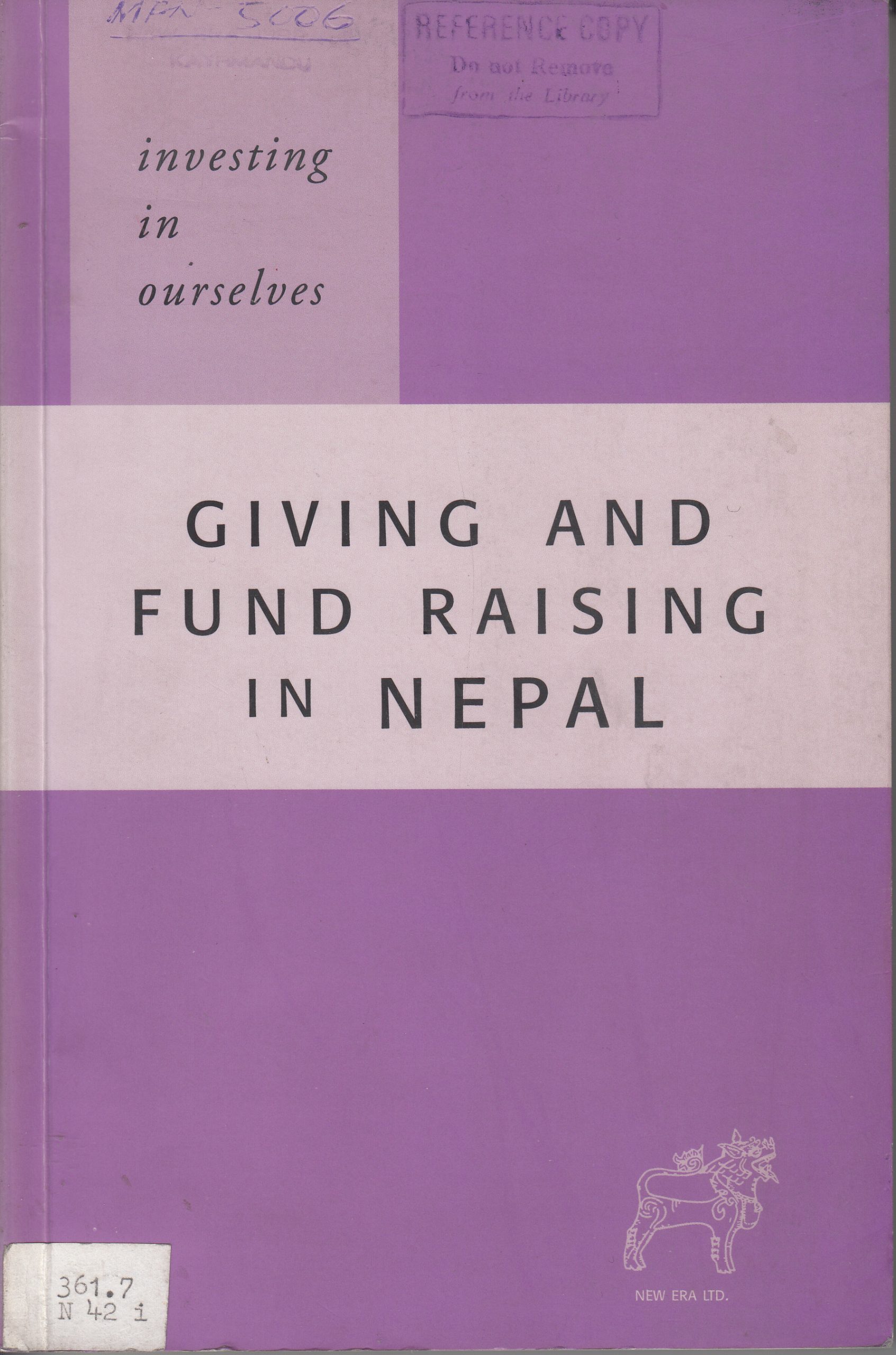This study reviews all previous studies/data and gives a clear picture of the poverty situation in Nepal in the past and at present. The study also reviews all of the major poverty alleviation programs in the country, identifies the major stakeholders, and assesses the resources spent. The study compiles data regarding the spatial distribution of poverty in terms of ecological belts and development regions
Report Type: Economic Development
Nepal Report: The Link between Poverty and Environment: Situation Analysis and Strategy for Change
This study identifies the spatial pattern of environmental degradation and poverty in Nepal. The study explores hot
spots for immediate intervention and recommends the most suitable entry-points to reverse the process of
environmental degradation. The study highlights specific examples to prove the hypothesis that poverty has resulted
in the degradation of natural resources and consequently has accelerated its own spread. This study also includes a
comparative assessment of on-going initiatives at different levels in relation to the management and use of natural
resources and poverty alleviation.
Socio-economic Security: Seeking Distributive Justice – Basic Security for All
This study was conducted to complete the template designed by ILO. The template basically deals with the socioeconomic security of labor including issues in relation to the labor market, security, employment security, job security, skill reproduction security, work security, representation security and income security.
A Study on Access to Financial Services for Small and Medium Enterprises in Nepal
This study establishes a clear picture of the formal and informal finance sector in relation to financial services
available for Occupational Skills and Enterprises Development (OSED) in Nepal. The study identifies possible partner institutions for implementing financial services. It also assesses existing financial policy, legislation and guidelines important to OSED.
Impact Assessment Study of South Asia Poverty Alleviation Program: Nepal
The South Asia Poverty Alleviation Programme (SAPAP) is a UNDP initiated regional intervention in SAARC countries with the objective of integrating social mobilization into the mainstream of development to achieve the economic and human development of the rural poor. This study assesses the impact of the SAPAP at the household and community level and also on local government and local service delivery agents in terms of translating the lessons of social mobilization into policy and action. The study gathered information from in-depth qualitative case studies to record changes in human deprivation with particular reference to gender discrimination.
Investing in Ourselves: Giving and Fund Raising in Nepal
This study builds awareness of successful methods of fund raising employed by Asian NGOs and identifies innovative best practices; increases understanding of the need for transparency and accountability; and increases the capacity of the NGOs to mobilize the resources. The study also documents Asian fund raising experiences in order to supplement or replace imported models and experiences for use in local training and also demonstrates that charitable giving and volunteering takes place even in relatively poor countries. This study was conducted in seven countries of Asia – Bangladesh, India, Indonesia, Nepal, Pakistan, Philippines, and Thailand. The study produced 112 case studies of successful local fund raising in the countries.



